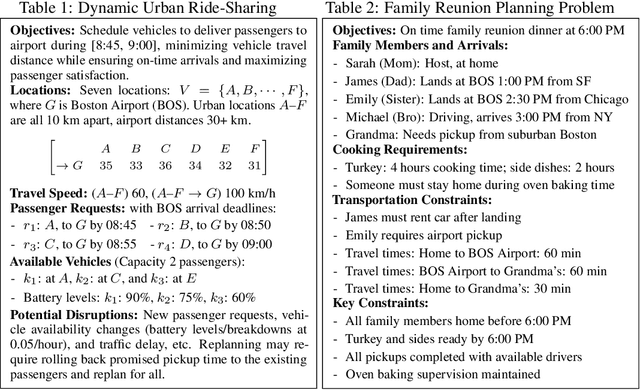ALAS: A Stateful Multi-LLM Agent Framework for Disruption-Aware Planning
Paper and Code
May 18, 2025



Large language models (LLMs) excel at rapid generation of text and multimodal content, yet they falter on transaction-style planning that demands ACID-like guarantees and real-time disruption recovery. We present Adaptive LLM Agent System (ALAS), a framework that tackles four fundamental LLM deficits: (i) absence of self-verification, (ii) context erosion, (iii) next-token myopia, and (iv) lack of persistent state. ALAS decomposes each plan into role-specialized agents, equips them with automatic state tracking, and coordinates them through a lightweight protocol. When disruptions arise, agents apply history-aware local compensation, avoiding costly global replanning and containing cascade effects. On real-world, large-scale job-shop scheduling benchmarks, ALAS sets new best results for static sequential planning and excels in dynamic reactive scenarios with unexpected disruptions. These gains show that principled modularization plus targeted compensation can unlock scalable and resilient planning with LLMs.
 Add to Chrome
Add to Chrome Add to Firefox
Add to Firefox Add to Edge
Add to Edge